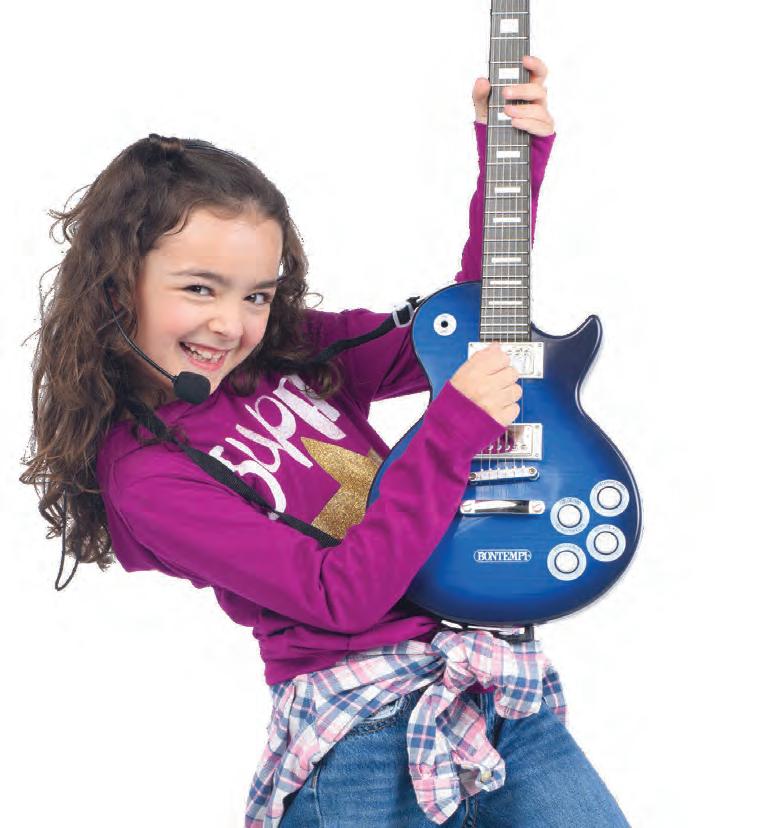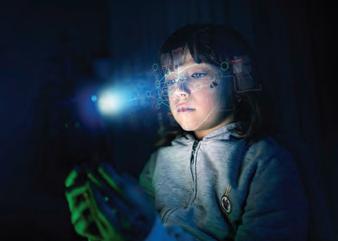
6 minute read
For Your Business Information
TikTok Trumps YouTube
The Verge reports that TikTok’s users now spend more time than YouTube users each month watching content. A report from app analytics firm App Annie indicates that in the U.S., TikTok overtook YouTube in August last year. As of this June, its users watched more than 24 hours of content per month compared to 22 hours and 40 minutes onYouTube.
The difference is starker in other countries – in the UK, TikTok overtook YouTube last May and today, users reportedly watch almost 26 hours of content a month, compared to less than 16 on YouTube. The figures only include viewership on Android phones, however, so they may not be representative of mobile users as a whole. “But caveats aside, they show the extent of TikTok’s meteoric rise over just a few short years,” says the article. “It’s even more impressive given the three-minute maximum of most of its videos, compared to the 10-minute format preferred by YouTubers; and that for much of 2020, TikTok faced continued threats that it would be banned in the U.S.”
MAY YOUR HOLIDAYS BE MERRY & BRIGHT!
Your Career was Probably Influenced by Your Toys and Play
Nearly half of adults say they are living out their childhood dream jobs, according to new research commissioned by The Genius of Play and conducted by OnePoll. In the survey of 2,000 adults in the U.S. with children ages 3 to 14, a third of respondents revealed that how they played as kids impacted the careers they pursued later in life, with the average deciding on their dream job by age 7 and landing that job by age 23.
“‘Fake it ’til you make it!’ might be a common expression in the real working world, but this new research proves that there is a true benefit to role-playing the job you want, especially as a child,” says Anna Yudina, senior director of marketing initiatives at The Toy Association.
The survey looked at factors that influenced career paths. Thirty-two percent of adults reported the toys they played with as a child influenced their careers. Other factors included the activities (sports, clubs, etc.) they participated in (50 percent), the media they consumed (40 percent), the careers of their parents (34 percent), and the influence of friends and siblings (21 percent).
In addition, most employed adults reported implementing in their daily jobs many of the soft skills they learned through play as a child. They include creativity, teamwork, problem solving, empathy, and communication,
Many respondents reported carrying over their childhood hobbies into adulthood. From drawing to music to writing, science, and more, the results emphasize that play continues to be a powerful tool at any age.
Eighty-six percent of those surveyed are now encouraging their own kids to play with toys to learn valuable skills they, too, could use as adults. The majority reported that they frequently encourage their child to play with toys that would enrich their learning and inspire careers in specific fields such as the sciences, technology, engineering, the arts, and mathematics.


Love! Love!WITH

SEE YOU IN 2022!
Toy Fair 2022 Booth 5907
401-284-0610 GoodToyGroup.com
Book Celebrates Impulse Toys
The latest (and definitive) edition of Rack Toys by freelance pop-culture writer and photographer Brian Heiler will be released through Nacelle Company’s new publishing department. The 2012 book is a love letter to the colorfully packaged toys that hang from grocers’ shelves; the ones designed to entice children sitting in shopping carts. When revered with nostalgia, these inexpensive toys possess plenty of charm and kitsch.
The popular collectors’ book includes expanded chapters and deeper dives into the worlds of Comic Action Heroes, TV and Movie Superstars, Saturday Morning, Spooky Fun Page, World Famous Super Monsters and more.
Cashless, Contactless, and Crypto Payments Grow, says Panel
A discussion at the National Automatic Merchandising Association show in Las Vegas this August explored the opportunities and complexities of the current payment landscape. In a session titled, “The New Landscape of Payment Acceptance,” panelists discussed the shifts that have occurred in consumer shopping behavior, today’s expanding payment options, and the increase in cashless payments. Here are some of the high points covered in an article by Elliot Maras, editor of Kiosk Marketplace and Vending Times.
Even before March 2020, cashless payments were increasing quickly, particularly in the “unattended market” (vending), noted Panelist Jeff Beach, vice president, merchant sales solutions at Visa. He presented these statistics. • Cashless rose from the around 35 percent of all transactions in 2018 to 64 percent today. • Contactless payment is also rising, driven partly by the pandemic and partly by the growth of digital wallets like Apple Pay and Google Pay. • “Tap-and-pay” has increased to 12 to 14 percent of transactions today. In the U.S., Visa has 370 million tap-and-pay cards, and its usage is above 25 percent in New York City, San Francisco and San Jose. • For Target, two of every five transactions are now contactless. • Contactless payments now account for 40 percent of fuel pumps at Costco after the retailer introduced tapand-pay pumps in March. • Contactless usage is at 30 percent in the unattended space, which is higher than in other retail environments. Recent growth in contactless marks a significant gain since the payments industry first promoted it 10 years ago, Beach said, when mobile phones weren’t even equipped for it. Today, “People don’t want to touch the surfaces as much as they did before.”
Communications technology associated with cashless is helping augment its use, since real-time information allows Visa to react to changes faster than would have previously been possible. “From Visa’s perspective, debit is the engine that is going to continue the drive to displace cash,” Beach concluded. Nicolas Cabrera, chief product officer at Bakkt LLC, a digital wallet for managing digital assets, noted that while not everyone is going to pay for purchases with bitcoin or other crypto currencies, the crypto market continues to grow rapidly. Bakkt has enabled cryptocurrency payments in vending machines, managing all of the currency conversion and settlement.
Beach agreed. Visa has supported crypto payments through some of its card programs, and in the last six months has seen more than $1 billion in crypto payments.
While cash payments have declined, they are not dead, said the panelists. “I don’t think cash is going away,” said Mike Coffey from Canteen Vending Services Inc. “Some customer segments are still 60- to70-percent cash users, and from a regulatory standpoint, some states require cash acceptance for the unbanked.”
Video Game Surveillance Technology Prevents Late-Night Users
This summer, Chinese gaming giant Tencent Games launched camera-enabled facial recognition to monitor children who play its video games, which include the wildly popular Honor of Kings. It will use the system to prevent young gamers from playing late at night, wrote David Mattin in his newsletter “New Week Same Humans.”
The move followed a nationwide moral panic about video game addiction among children.
Device cameras are auto-enabled during play, and gamers are matched against a national citizen database held by the Ministry of Public Security. Children under age 12 are kicked off after one hour; 13 to 18-year olds get two hours. Now, Tencent is expanding its surveillance to prevent late night game binges. Called Midnight Patrol, the initiative will lock minors out of all Tencent games between 10 p.m. and 8 a.m.
In the U.S., 72 percent of parents say they are worried about their children’s screen time. “That means the Tencent system solves a problem that people are just as concerned about in the Global North as they are in China,” observes Mattin, the British journalist who founded the weekly newsletter. “We inhabitants of the Global North have been conditioned to think of privacy and individual liberty as foundational values. The Chinese techno state is about to pose a difficult question: what if trading away some freedom could buy you some peace of mind, convenience, or security? What if that is better, actually?”








